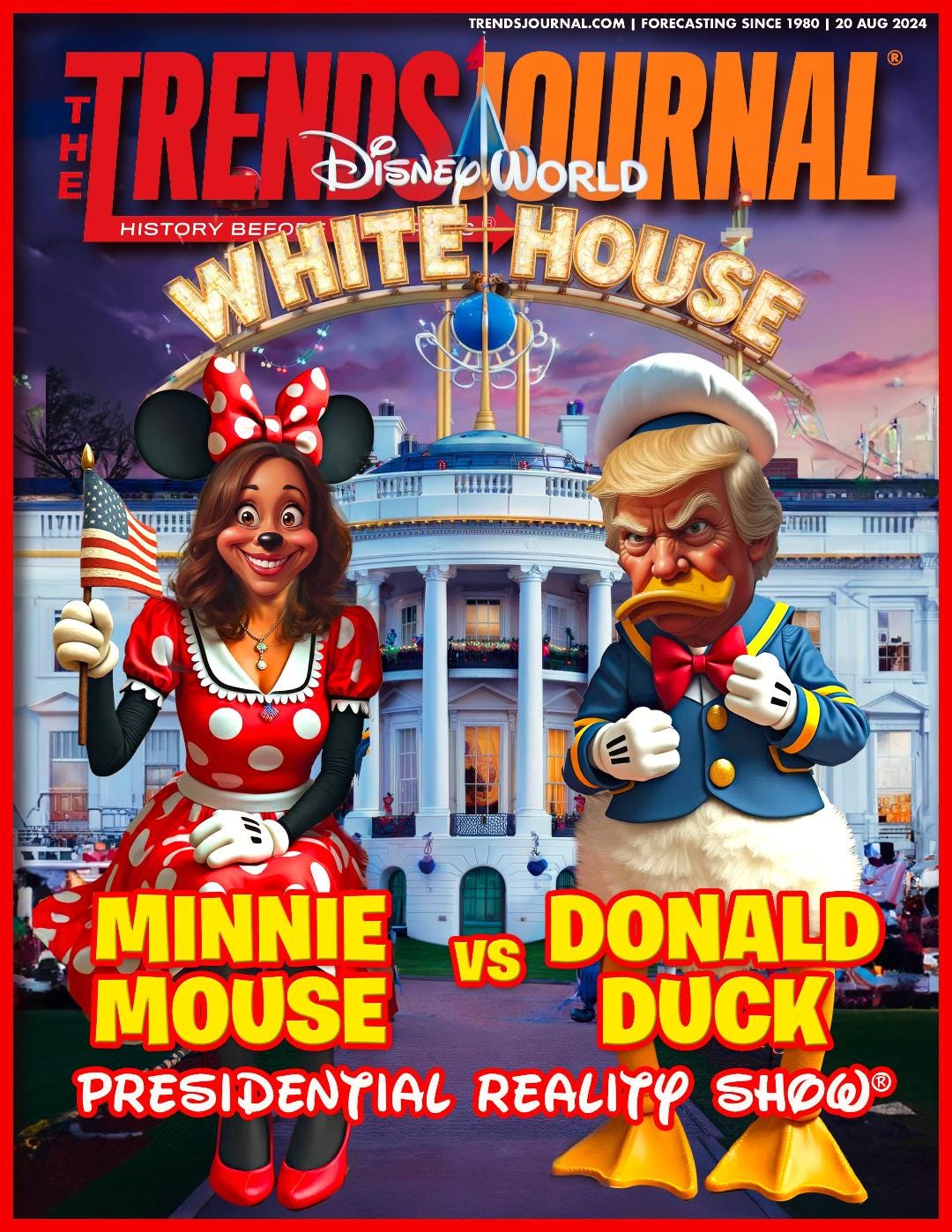WWIII: Biden’s New Nuke Strategy Focuses on Coordinated Response From China, Russia, North Korea
Scott Ritter, the former UN weapons inspector, called Putin's visit to Pyongyang a game-changer

The Trends Journal informed our readers in February 2022, when the first Russian tank rolled into Ukraine, that WWIII had begun and that it would only become official when the first nuclear strike occurred.
Since the invasion, the U.S. has done nothing but promote more conflict and - as a result of pathetic diplomacy - pushed Beijing, Moscow, and Pyongyang all closer together with a mutual interest in ending Washington’s bullying effort to maintain a unipolar world.
WATCH GERALD CELENTE ON INFOWARS
The Biden administration has failed at every turn, so U.S. President Joe Biden has been forced to revise its nuclear strategy that includes a coordinated nuclear response from Russia, China, and North Korea – with special attention paid to Beijing, which is expected to significantly increase the number of nukes in its possession, The New York Times reported on Tuesday.
The paper said the White House never announced the new strategy called the “Nuclear Employment Guidance.”
Vipin Narang, an M.I.T. nuclear strategist who served in the Pentagon, said earlier this month that Biden “issued updated nuclear-weapons employment guidance to account for multiple nuclear-armed adversaries,” mainly China.
The paper read:
In the past, the likelihood that American adversaries could coordinate nuclear threats to outmaneuver the American nuclear arsenal seemed remote. But the emerging partnership between Russia and China, and the conventional arms North Korea and Iran are providing to Russia for the war in Ukraine have fundamentally changed Washington’s thinking.
While the Western media whores tried to poke fun at Russian President Vladimir Putin and North Korea’s Kim Jong Un meeting in Pyongyang in June, the two came up with a mutual defense pact that was heard loud and clear from Seoul to Washington.
North Korea published the text of the treaty that states both sides “shall provide military and other assistance with all means in its possession without delay” if either one was attacked or went to war.
Artyom Lukin, a political scientist at Far Eastern Federal University in Vladivostok, Russia, told NPR that the agreement might mean that “Russia and North Korea would fight in each other’s military conflicts.”
TRENDPOST: Scott Ritter, the former UN weapons inspector, said in an interview with Judge Andrew Napolitano’s “Judging Freedom” podcast that Russian President Vladimir Putin’s trip to North Korea this week was a “game-changer” for Pyongyang and Moscow.
“This is a game changer,” he said. “I’m not abusing this term. This changes everything… fundamentally changes everything.”
Ritter noted that the U.S. has been engaged in a so-called pivot to the Pacific in hopes of surrounding China, with the centerpiece of that mission to build up the trilateral relationship between Washington, Seoul, and Tokyo, “all premised on the notion of the continued isolation of North Korea.”
“North Korea is no longer isolated,” he said.
He said it was widely thought that China would be the first to break the trade barriers with North Korea, but Beijing hesitated because it didn’t want to “incur the wrath of the collective West” vis-a-vis economic sanctions.
“Russia doesn’t care anymore about sanctions,” he said. “They bore Russia. In fact, the more you sanction Russia, the stronger Russia gets. So Russia is beyond caring and so, too, is North Korea. Two nations that simply do not care about anything the West does have come together to strengthen each other.”
Putin said the arrangement with North Korea could be carried out the same way the West provides weapons to Ukraine.
“We can similarly say that we supply something to somebody but have no control over what happens afterward. Let them think about it,” he said.




